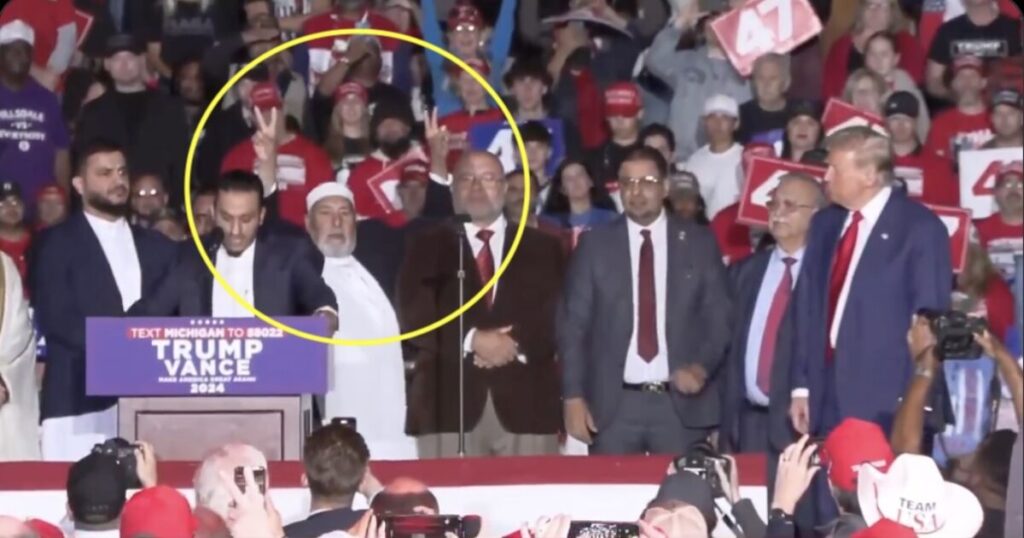Michigan has long been known for having the largest Muslim population in the United States, historically wielding considerable political influence, especially through a majority who have traditionally supported Democratic candidates. However, a notable change is affecting the dynamics of Muslim American voting patterns, particularly as seen in the 2024 election cycle. A pivotal moment occurred on September 22, 2024, when Hamtramck Mayor Amer Ghalib, an Arab-American Democrat, publicly announced his endorsement of former President Donald Trump during a private meeting in Flint, Michigan. This endorsement is especially significant given that Hamtramck boasts the distinction of being the first city in America with a Muslim-majority government, showcasing an unexpected shift in loyalty that could reshape electoral outcomes in the state.
Ghalib’s meeting with Trump covered a range of topics, including polling data and the concerns of Arab Americans, especially Yemeni Americans, indicating a serious dialogue about issues pertinent to these communities. The endorsement was immediately lauded by Trump and other Republican supporters, framing it as a sign of increasing support among Muslim Americans. The political landscape in Michigan is unique, and Ghalib’s backing signals a potential fracture in the traditional voting patterns of Muslim communities, suggesting that they may no longer be taken for granted by the Democratic Party.
Adding to the tensions between Muslim constituents and the Democratic Party, another incident occurred on October 22, when Ahmed Ghanim, a Democrat activist, was removed from a Kamala Harris rally in Royal Oak, Michigan, without a clear explanation. Ghanim felt targeted due to his Muslim identity, his experience raising questions about the Democratic Party’s commitment to inclusivity and support for marginalized groups within its ranks. The incident and subsequent lack of accountability highlighted grievances among Muslim Democrats, leading some to feel sidelined and prompting them to reevaluate their political loyalties in light of perceived neglect.
The discontent within the community has culminated in a broader shift towards the Republican Party, as evidenced by the growing number of endorsements for Trump from Muslim leaders. During a rally in Novi, prominent Muslim speakers emphasized their desire for peace, family values, and a strong economy, aligning their views with Trump’s policies. These leaders articulated a vision of a Trump presidency as one that would represent all Americans, regardless of race or religion, while also pledging to maintain legal immigration and secure borders. The underlying message was clear: many Muslims feel that their core values resonate more with Trump’s proposals than with those offered by Democrats.
Politically, this shift among Muslim voters in Michigan could have a significant impact on the landscape of the upcoming election. Observers note that the Democratic Party may experience a considerable setback in its voter base, particularly given the possibility of disenfranchised voters from other demographics, such as Black males and females, also reconsidering their allegiance to the party. Concerns about socioeconomic disparities, public safety, and perceived favoritism towards illegal immigrants have fueled these sentiments, prompting calls for change among constituents who feel overlooked and marginalized.
As the election approaches, the Republican Party seems poised to capitalize on these developments, framing them as a testament to wider discontent with the policies and practices of the current Democratic administration. The resulting electoral dynamics, influenced heavily by this evolving relationship between Muslim voters and their political identities, may well determine the outcome in Michigan and beyond. As tensions rise and allegiances shift, the stakes for both parties in the upcoming election are higher than ever, with profound implications for how various communities engage in the political process moving forward.

